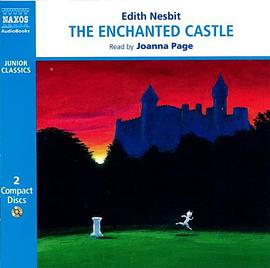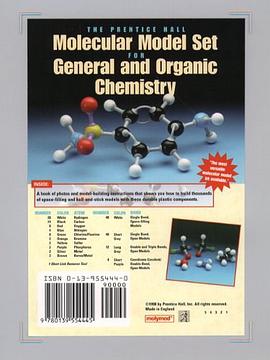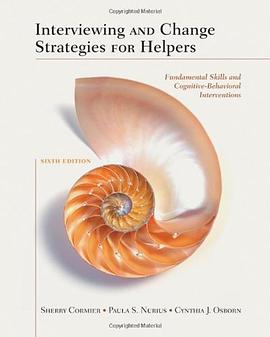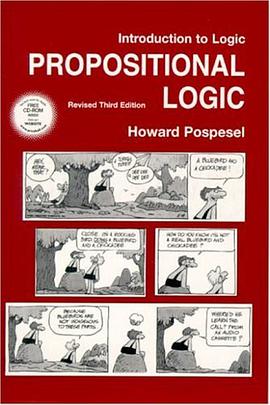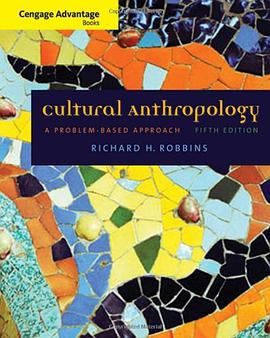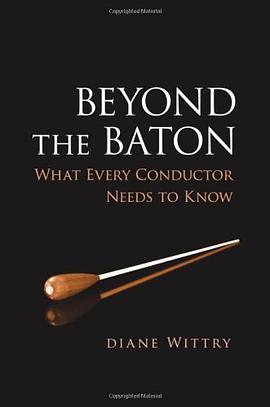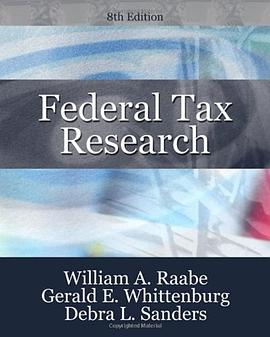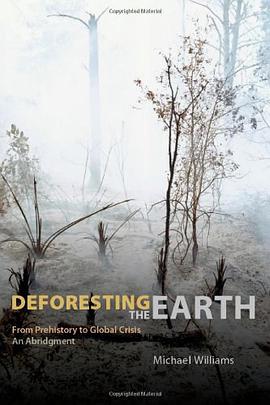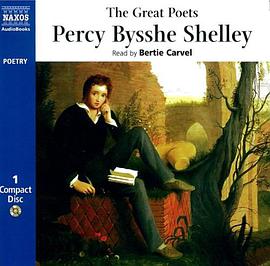
具体描述
The Great Poets series launched in 2007 has proven very popular, offering many of the best-loved poems by popular poets in an inexpensive 1 CD collection. Here is a selection of well-known poems by Percy Bysshe Shelley (1792-1822). One of the controversial figures of the English Romantic movement, Shelley's personal life and his early death by drowning cemented his reputation. In this popular collection are many of his best-known poems, including Ode to the West Wind and To a Skylark.
作者简介
Booklet Notes
The period into which Shelley was born in 1792 was witness to some of the most wide-ranging and abrupt transformations in the history of European civilisation.
Shelley’s response to these upheavals was complex but robust, and highly individual, not to say courageous. His outspoken views began to get him in trouble from the very beginning, even while a scholar at Eton, where he was the victim of bullying both for his atheism and his refusal to ‘fag’ for an elder boy, let alone for his apparently somewhat epicene appearance.
At Oxford he published a Gothic novel, Zastrozzi, and, with his sister Elizabeth, Original Poetry by Victor and Cazire. Interestingly, another publication (written in collaboration with Thomas Jefferson Hogg, his closest friend at Oxford), which came before the public under the title of Posthumous Fragments of Margaret Nicholson, being poems found among the papers of that noted female who attempted the life of the king in 1796, is a clear expression of his republicanism.
Dangerously subversive though these verses might have been, it was his much more directly challenging pamphlet The Necessity of Atheism, also written with Hogg, which led him to be rusticated and – when his father failed to persuade him to recant – sent down in disgrace.
Such, or similar, views must surely have been expressed by other students in previous decades, and even concurrently with the effusions of Shelley and Hogg, but the difference with Shelley was that rather than simply ‘letting off steam’ before ‘knuckling under’ and ultimately fitting in, he meant what he said and stood by it.
His refusal to submit to paternal and academic authority is all one with his youthful idealism, but it led to a complete break with his family. Had he been able to compromise, he would in time have inherited his father’s baronetcy and become a Member of Parliament, but it is hard to imagine the author of The Mask [masque] of Anarchy meekly taking his place in the Lords and declining into a settled existence with wife and children.
The breach with his father was made worse when Shelley eloped to Scotland with the beautiful sixteen-year-old Harriet Westbrook, who had earlier broken off their correspondence in shock at his irreligious views. Shelley’s allowance was cut off, resulting in persistent money problems, even though a partial restoration was negotiated.
From Scotland the young couple moved to the Lake District – after Shelley had failed to persuade his wife to accept sharing lodgings with his friend Hogg and his wife. Already shocked by her husband’s apostasy, Harriet rejected any idea of an open marriage.
During a visit to Ireland he engaged in radical pamphleteering, wrote the Address to the Irish People, and attended nationalist rallies. Not content with this, he authored A Declaration of Rights on the subject of the French revolution, but it was deemed too radical for distribution in Britain.
At Lynmouth in Devon he set about establishing a small commune of like-minded idealists, but moved to Wales on learning that because of his radical activities and writings he was coming under the baleful eye of Home Office agents. There is even a story that a shepherd fired three shots at him while he was living in Tanyrallt in Carnarvonshire.
In 1813 he published his first major poem, Queen Mab, later to become known as ‘the Chartist’s Bible’. In the prose notes Shelley covers free love, atheism, Christianity and vegetarianism.
Shelley began leaving Harriet alone with their baby daughter Ianthe to spend time in London, particularly at the bookshop and home of the freethinker William Godwin, who had formed a liaison with the very forward-looking proto-feminist Mary Wollstonecraft, author of A Vindication of the Rights of Women. When she had become pregnant they had married, but Mary later died giving birth to a daughter, whom the broken-hearted William named after his wife.
In 1814 Shelley abandoned Harriet, now pregnant with their second child, to elope with another sixteen-year-old – the daughter of his mentor. Mary, Shelley’s intellectual equal, was altogether a more suitable partner. Together with Mary’s step-sister Claire Clairmont, also sixteen, they sailed to Europe, crossing France and settling in Switzerland, of which journey the Shelleys later published an account.
The continental venture ended bathetically, as they had to return to England, depressed, homesick and without funds. To their consternation Godwin, the one-time advocate of free love, refused to see his daughter and her lover.
In 1815 Shelley produced Alastor; or, The Spirit of Solitude, now recognised as one of his more important early pieces.
Lured back to Switzerland by Claire (who had begun an affair with Lord Byron, although Byron was tiring of her), Shelley and Mary settled in a neighbouring house, and during this time both poets influenced each other’s work. Shelley’s Hymn to Intellectual Beauty dates from this period.
Back again in England in 1815, they were relieved of financial difficulties by the death of Shelley’s grandfather and a subsequent inheritance, but both Mary’s half-sister Fanny and, later, Shelley’s estranged wife Harriet committed suicide. Mary became Shelley’s second wife at the end of that year.
Living for a while in Buckinghamshire, Shelley became part of a circle that included Thomas Love Peacock and Leigh Hunt and it was at this time that he also met John Keats (memorialised in his fine, moving Adonaïs).
In 1818 the Shelleys left England for good after the long poem Laon & Cythna – its subject matter incest and attacks on religion – had to be withdrawn from publication (it later appeared in edited form as The Revolt of Islam). The ostensible purpose of the move was to escort Claire and her daughter Allegra on their way to see Allegra’s father, Byron.
For the next four years the Shelleys moved from city to city in Italy, Shelley writing copiously and powerfully, producing, on the one hand, extensive verse dramas such as Prometheus Unbound and, on the other, intimate addresses to another object of love and desire, Jane Williams, the common law wife of a member of his circle.
Shelley’s death in 1822 by drowning as the result of a sailing incident has never been satisfactorily explained. Although he was no expert sailor, evidence suggests that it was through no fault of his own that his schooner, the Don Juan, capsized. One theory is that he was effectively murdered, maybe by agents of the British government.
Shelley is the paradigm of the youthfully idealistic poet, but to dismiss him as T. S. Eliot once did as an ‘adolescent’ seems to suggest that Shelley ought to have ‘grown up’ and been content to partake of the hidebound conventionality, corruption and hypocrisies of Regency England. It is hard to believe that had Shelley lived on, his life would have traced a pattern comparable to Wordsworth’s. His early death seems an essential part not only of the myth of the doomed poet, but also of the spirit of this particular poet himself: that it is preferable to die young than disillusioned, but also that man is at his best when he yearns, hopes, dreams and stretches out his hand towards the ideal, ever striving for a better world.
目录信息
Mutability
To Wordsworth
Hymn to Intellectual Beauty
Ozymandias
Stanzas Written In Dejection Near Naples
from ‘Prometheus Unbound’
The Indian Serenade
Ode to the West Wind
Song to The Men of England
Sonnet: England in 1819
The Mask of Anarchy
The Cloud
To A Skylark
from Epipsychidion
To the Moon
A Lament
One word is too often profaned
Chorus from Hellas
Concluding stanzas from Adonais
With A Guitar, To Jane
Song: Rarely, rarely, comest thou
To Jane: The Invitation
Time
Lines: ‘When the lamp is shattered’
Music, When Soft Voices Die
To Jane: The Recollection
· · · · · · (收起)
读后感
评分
评分
评分
评分
用户评价
读完《Great Poets》,我的内心久久不能平静。这本书最让我感到惊喜的是,它并没有高高在上地讲述诗歌,而是以一种非常亲切、甚至可以说是“接地气”的方式,让诗歌走进我们的生活。作者在描述诗人的生活细节时,常常穿插着一些幽默的笔触,或是发人深省的议论,让人在会心一笑之余,也能对诗歌创作本身产生新的认识。例如,书中对某位诗人晚年创作状态的描述,就充满了一种对人生和艺术的深刻理解,读来既有伤感,也有振奋。这种将诗歌与普通人的生活体验相结合的尝试,让我觉得诗歌不再是阳春白雪,而是我们生活中可以触及的美好。
评分我对《Great Poets》的评价可以从多个维度展开。首先,其内容的新颖之处在于,它并非仅仅停留于对经典诗歌的解读,而是巧妙地将诗歌创作与时代变迁、社会思潮紧密结合。作者似乎有着极强的叙事能力,能够将复杂的诗歌理论或哲学思考,用一种平实易懂的语言呈现出来,让即使是对诗歌不太熟悉的读者也能轻松领会。我印象特别深刻的是,书中对几位诗人创作风格的演变进行了细致的分析,对比了他们不同时期的作品,揭示了他们思想的成长和艺术的成熟过程。这种深入浅出的解读方式,让我对这些“伟大”的定义有了更深层次的理解,不再是遥不可及的崇拜,而是充满了共鸣和思考。
评分《Great Poets》给我带来的整体感受是,它不仅仅是一本关于诗歌的书,更是一部关于人生、关于情感、关于人类精神的探索史。我特别喜欢书中对几位诗人之间相互影响和唱和的描写,这让我看到了文学史上的脉络和传承,也感受到了一种跨越时空的对话。作者在分析这些关系时,并没有陷入枯燥的考据,而是用一种非常具有画面感的方式,将这些诗歌史上的“朋友圈”活灵活现地呈现在读者面前。这种叙事方式,让我在阅读过程中,仿佛置身于那个时代的文坛,亲历着诗歌的诞生与流传。这本书让我对“伟大”有了更广阔的理解,也更加热爱诗歌这份宝贵的精神财富。
评分《Great Poets》为我打开了一扇通往诗歌世界的大门,其独特之处在于它对“伟大”的定义并非单一或僵化。书中巧妙地引入了许多我们可能不太熟悉的诗人,但通过作者细致的挖掘和生动的讲述,他们身上所散发出的独特的光芒同样令人惊叹。我尤其欣赏作者在处理不同诗人作品时的视角差异,有些篇幅着重于诗歌的技巧和形式,而另一些则更侧重于诗歌所承载的情感和人文关怀。这种多角度的审视,使得整本书的内容更加丰富和立体,也让我意识到,诗歌的伟大并非只有一种模式。它让我看到了诗歌创作中潜藏的无限可能性。
评分这本《Great Poets》简直像是一场文学的盛宴,让我流连忘返。从翻开第一页的那一刻起,我就被深深地吸引住了。它并没有简单地罗列出一堆名字和作品,而是以一种非常生动、引人入胜的方式,将这些伟大的诗人及其创作背后的故事娓娓道来。我尤其喜欢作者对诗人生活经历的描绘,那些坎坷的命运、炽热的情感、以及对世界独特的洞察,都让诗歌不再是冰冷的文字,而是充满了生命力的跃动。例如,在谈论某个诗人时,书中穿插了大量关于他所处时代的历史背景、社会风貌,甚至是一些当时鲜为人知的轶事。这让我在阅读诗歌的同时,仿佛置身于那个时代,能够更深刻地理解诗歌的情感和意境。
评分 评分 评分 评分 评分相关图书
本站所有内容均为互联网搜索引擎提供的公开搜索信息,本站不存储任何数据与内容,任何内容与数据均与本站无关,如有需要请联系相关搜索引擎包括但不限于百度,google,bing,sogou 等
© 2026 qciss.net All Rights Reserved. 小哈图书下载中心 版权所有






